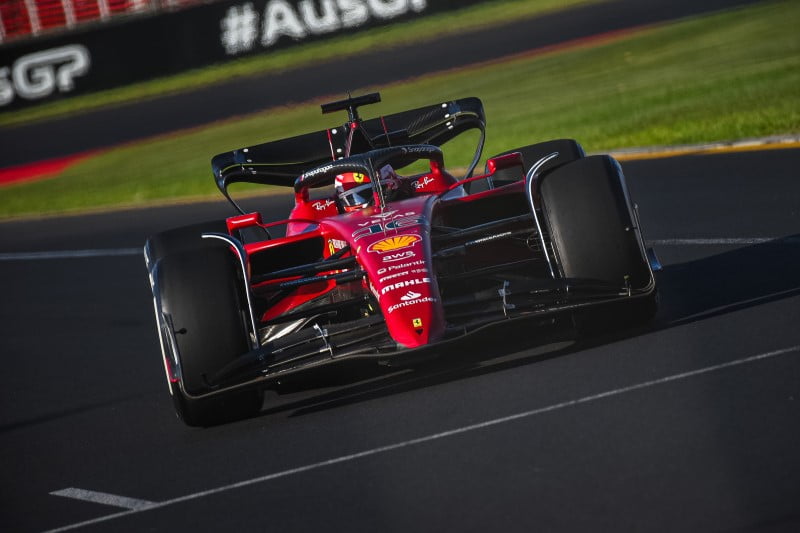AWS & Formula 1 – How Artificial Intelligence/Machine Learning drives transformation for Formula 1
Formula 1 racing is a data-driven sport where much of the thrill for fans comes from poring over statistics before and after a race to gain a deeper understanding of driver and team decisions and cars’ performance on the track. To enhance the viewing experience of fans, AWS partnered with Formula 1 (F1) to help them use advanced cloud technologies like machine learning and cloud computing. F1 relies on the breadth and depth of AWS services to stream and analyze that flood of data as it is generated, and then present it in a meaningful way for TV and online viewers around the world through F1 Insight.
Today’s sports leagues are using advanced data to learn more about their athletes and gain a competitive advantage. AWS works with some of the leading sports organizations from around the world, which uses the power of AWS ML to create new stats and improve player’s health and safety, while creating a better experience for fans, players, and teams—all in real time.
Where are we today?
With the exception of driving aids incorporated into the car, data is now widely used in all aspects of Formula 1 decision-making. The data sent from the race car is invaluable for identifying performance and obtaining outcomes, from car development to race strategy. Car design is a highly technical frontier that necessitates the collaboration of the world’s greatest computer scientists, racing engineers, and physicists to develop the highest performing and most elite race car possible while adhering to the rules.
Pushing the racing boundaries
Formula 1 selected AWS as their Official Cloud and Machine Learning Provider in 2018 and moved a vast majority of its infrastructure from on-premises data centers to AWS and standardizing on AWS’s machine-learning and data-analytics services to accelerate its cloud transformation. Formula 1 is responsible for the promotion of the FIA Formula One World Championship, a series of auto racing events in 21 countries in which professional drivers race single-seat cars on custom tracks or through city courses in pursuit of the title of World Championship.
AWS worked with Formula 1 to redesign the 2022 race car that fans saw on the track at the CGP that reduces downforce loss in wheel-to-wheel racing from 50 percent to 15 percent which offers a more exciting experience for fans. To achieve this, Formula 1 used Amazon EC2 for Computational Fluid Dynamics (CFD) to simulate race car aerodynamics, achieving the performance of a super computer at a much lower cost and reducing simulation time by an average of 70 percent—from 60 hours down to 18 hours. With the CFD project, Formula 1 used over 500 million data points to study downforce loss when two vehicles race in close proximity (A car’s downforce increases its tire grip and cornering speed and reduces lap time).
“We are living in the glory of machine learning today. Businesses are moving from piloting machine learning projects to implementing it in production. Many ML use cases are in production that are assisting businesses in being competent and resilient. The question of whether you should have an ML strategy is no longer relevant; rather, what matters is how rapidly you can implement your ML strategy. We all have a part to play in defining future products, and with so many employment opportunities in machine learning, from scientists to product managers to engineers, everyone with an interest should not be hesitant to pursue one. Given the availability of online resources, it has never been easier to learn.” Priya Ponnapalli, Senior Manager, Amazon Machine Learning (ML) Solutions Lab
The breakthrough between AWS and Formula 1
Formula 1 began working with AWS (Amazon Web Services) to enhance race strategies, data tracking systems, and digital broadcasts through a wide variety of AWS services. These services include Amazon SageMaker, a fully managed machine learning service that enables everyday developers and scientists to easily build and deploy machine learning models. AWS Lambda, AWS’s pioneering event-driven serverless computing service, and AWS analytics services — to uncover never-before-seen metrics that will change the way fans and teams enjoy, experience, and participate in racing.
Through this partnership, AWS’s technology is enabling Formula 1 to improve the way it utilizes data for its business, improve both driver and vehicle performance as well as make decisions about the look and feel of the car and rules of the race.
Using Amazon SageMaker, Formula 1’s data scientists trained deep-learning models with over 70 years of historical race data to extract critical race performance statistics, make race predictions, and give fans insight into the split-second decisions and strategies adopted by teams and drivers. Additionally, in combination with Amazon Kinesis, a product used to collect, process, and analyze streaming data in real-time, SageMaker can detect how a driver is performing mid-ride, determining whether drivers have pushed themselves over the limit.
“We have partnered with Formula 1 on some very key events which includes, transforming the sport, changing how they collect data, how they analyse it and how they visualise it. Our goal is to enhance fan engagement through all the Formula 1 sites, where we’ve partnered on creating a better racing product by helping them develop the next generation of the car. The most challenging aspect is always at the onset and that is the part where we collaborate with F1 experts and start working backwards from there,” says Priya.
The future is bright
Engineers will progressively rely on machine learning to speed up results and identify design ideas that they would not have come up with otherwise. This methodology is not yet used widely, but it is expanding rapidly across many engineering companies and disciplines, thanks to the enormous potential and major developments in recent years that have addressed its flaws. There is a plethora of areas in which AI can be used to enhance the developments.
AI as a space can use numerous and diverse perspectives and needs all those ideas coming from all the different fields. It has never been easier to learn a new domain, especially coming up to speed. Today, there are many online courses and great content on ML for people to gain knowledge. So, pull yourself up a chair, bring your unique perspectives and experience to this field.















